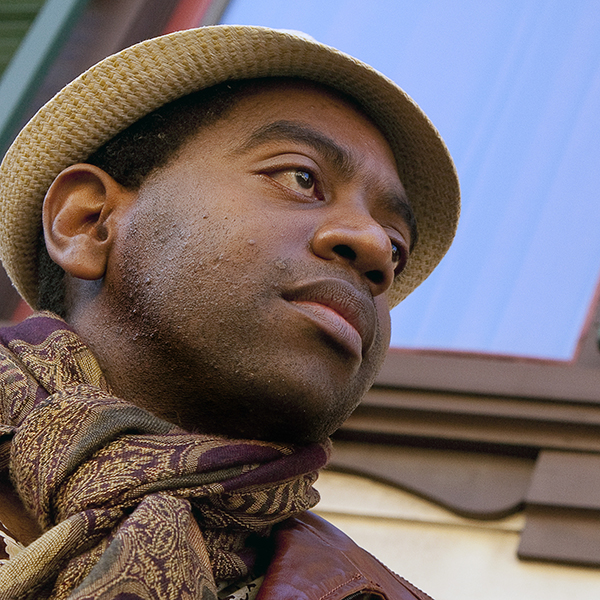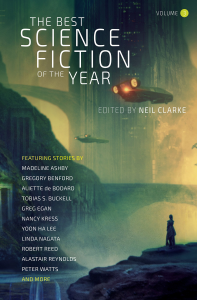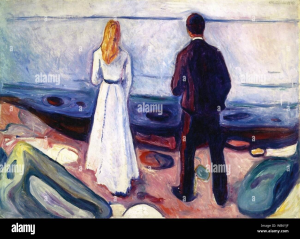Yosvany Terry, an esteemed figure in Afro-Cuban music and music education, is making waves as a senior lecturer at Harvard and the director of the Harvard Jazz Ensembles. With a rich heritage rooted in Afro-Cuban traditions, Terry seeks to explore the ties between the musical practices of the African diaspora and contemporary genres through his artistry and academic pursuits. His recent research trips to Benin and Cuba highlight the critical connections between these cultures, emphasizing how traditional music has been preserved as a form of identity and resistance. Terry’s dedication to revealing these links is not only pivotal for understanding music traditions but also enriches the comprehensive education he provides to his students at Harvard. As he prepares for an upcoming performance on May 1, audiences can look forward to a vibrant fusion of history and artistry that underscores the profound impact of cultural heritage on modern music.
Yosvany Terry embodies the intersection of musical scholarship and performance, representing a vital voice in the conversation surrounding African musical influences in the Americas. His work focuses on the essential role of music as a cultural guardian, showcasing how historical practices among the African diaspora inform present-day musical landscapes. Through engaging educational experiences and his leadership at Harvard, Terry champions the significance of understanding diverse music traditions, urging his students to delve into the depths of cultural narratives that shape their identities. The upcoming ArtsThursdays performance promises to celebrate this rich heritage, offering a glimpse into the dynamic evolution of jazz within this cultural context. By bridging gaps between distinct musical disciplines, Terry continues to redefine the educational landscape for aspiring musicians.
Exploring Yosvany Terry’s Musical Journey
Yosvany Terry’s remarkable journey as a musician and educator intertwines the rich musical traditions of both West Africa and the Caribbean. His recent research in Benin allowed him to delve deep into the roots of Afro-Cuban music, understanding how the cultural heritage from the African diaspora has influenced contemporary musical forms. Throughout his explorations, Terry has engaged with local musicians, absorbing the intricacies of their musical practices, and creating an authentic bridge between these traditions and modern jazz. This exchange not only enriches his own compositions but also delivers invaluable insights to his students at Harvard.
By combining his Cuban heritage with the unique sounds of Benin, Terry highlights the importance of preserving these age-old traditions in an ever-evolving musical landscape. His dedication to music education shines through his efforts to bring this knowledge into the classroom, fostering a sense of cultural appreciation among students. As a mentor, Terry aims to keep the dialogue between these music traditions alive, encouraging students to explore how historical contexts shape the music we enjoy today, and how it continues to evolve while maintaining core cultural identities.
The Impact of the African Diaspora on Music Traditions
The influence of the African diaspora on musical traditions is profound, with roots extending from the shores of Africa to the Americas, including the development of jazz. Through his research, Yosvany Terry underscores the significance of understanding these connections, showing how the preservation of African cultural practices has been vital in resisting assimilation pressures. This historical context not only provides a deeper appreciation of Afro-Cuban music but also enlightens students on the pivotal role these traditions play in shaping modern music genres.
As Terry shares his knowledge with students, it becomes clear that these musical traditions are not just relics of the past, but living expressions of resilience and identity. The interactions between African rhythms and Caribbean melodies have created vibrant musical forms that resonate with audiences worldwide. Students are encouraged to explore this tapestry of influences, examining how popular culture continues to evolve through these foundational roots, thereby recognizing the ongoing impact of the African diaspora on contemporary music.
Yosvany Terry’s focus on these themes fosters a greater understanding of how intertwined our musical heritages are, leading to life-changing experiences for students who may not have had this exposure otherwise. His advocacy for music education as a means to connect cultures enhances the appreciation of diversity that lies within the fabric of America’s musical landscape.
Integrating Music and Education at Harvard
At Harvard, Yosvany Terry advocates for an integrated approach to music education that embraces diverse musical traditions. He emphasizes the importance of cross-departmental collaboration, linking the study of Afro-Cuban music with broader themes of cultural identity and historical context. By introducing students to artists of Afro-Latin American descent, Terry enhances their learning experience and expands their understanding of jazz as a global language. This not only enriches the educational landscape at Harvard but also inspires a generation of artists to appreciate and propagate these traditions.
Terry’s vision for the Harvard Jazz Ensembles is not merely about performing music; it’s about cultivating an environment where students can explore their identities through sound. He believes in providing platforms for students to engage with masters of the craft and to learn from their experiences, fostering a sense of community and shared creativity. This educational model cultivates lifelong advocates for the arts, equipping students with the knowledge and skills to explore music beyond the classroom, thus perpetuating the traditions that shape our cultural heritage.
Celebrating Cultural Exchange Through the Arts
The celebration of cultural exchange is central to Yosvany Terry’s mission, particularly through initiatives like ArtsThursdays at Harvard. These events not only showcase the talent of faculty and students but also bring the local community together to experience the vitality of Afro-Cuban music and its connections to global music traditions. Terry’s performances are illuminated by the rich tapestry of sounds that represent both his heritage and the cultures he has engaged with, fostering a deeper understanding of the arts as a collaborative space.
By participating in ArtsThursdays, Terry exemplifies how art can transcend boundaries, creating dialogue between various disciplines and communities. These performances create a unique atmosphere where students can witness firsthand the dynamism of cultural encounters in music, while audiences can appreciate the authenticity of the traditions represented. Such endeavors highlight the significance of music as a universal language that connects, educates, and inspires.
The Future of Jazz and Arts Education at Harvard
Looking forward, Yosvany Terry envisions a vibrant future for jazz and arts education at Harvard, marked by inclusivity and diversity. His commitment to expanding the repertoire to include various cultural expressions reflects a broader trend of recognizing the value of different musical traditions within academic settings. By continuing to bring in visiting artists from different backgrounds, Terry aims to cultivate an environment where students are exposed to a multitude of perspectives, enriching their artistic journey.
Moreover, Terry advocates for the integration of technology and innovative practices within music education, exploring how AI can support the understanding of intricate musical traditions. This forward-thinking approach positions Harvard as a leader in the evolving landscape of music education, ensuring that students are not only well-versed in classical and jazz idioms but also equipped to engage with modern advancements in the field. Terry’s vision emphasizes that the arts will continue to flourish at Harvard, reflecting the diverse voices and changing dynamics of society.
The Role of Collaboration in Artistic Growth
Collaboration plays an essential role in artistic growth, and Yosvany Terry embodies this principle through his work at Harvard. By engaging with faculty and students from various disciplines, he fosters innovative crossover projects that push the boundaries of traditional music education. Such collaborations encourage students to explore the intersection of different art forms, examining how they can inform and enrich each other. This not only enhances their educational experience but also prepares them for an increasingly interconnected world.
Through initiatives such as joint workshops and performances, Terry demonstrates how diverse artistic expressions can come together to create powerful new forms. His commitment to collaboration instills in students the importance of teamwork in the creative process, highlighting how shared experiences and perspectives can lead to groundbreaking artistic discoveries. In this way, collaboration becomes a cornerstone of Terry’s teaching philosophy, aimed at nurturing a generation of artists capable of navigating the complexities of a diverse cultural landscape.
Reflecting on Cultural Heritage in Composition
Yosvany Terry’s research and experiences directly influence his creative output as a composer, where he strives to weave cultural heritage into his works. By reflecting on his findings from Benin and Cuba, he is able to craft compositions that not only honor these traditions but also engage contemporary audiences. This exploration of identity through music allows Terry to create pieces that resonate with both personal and collective histories, drawing connections between past and present.
In his compositions, Terry often integrates elements of Afro-Cuban rhythms with other jazz idioms, showcasing the beauty of cultural fusion. This practice serves as both an homage to the legacy of the African diaspora and an invitation for listeners to appreciate the complexity and richness of musical influences. By sharing these compositions with his students, he encourages them to explore their own backgrounds and how they can inform their artistic expressions. Through Terry’s work, the importance of cultural heritage becomes evident, reinforcing music’s role as a conduit for storytelling and cultural transmission.
Engaging Students Through Experiential Learning
Experiential learning is at the heart of Yosvany Terry’s teaching approach, particularly evident in the educational trips he organizes for students. By visiting countries such as Cuba and the Dominican Republic, students step outside the traditional classroom setting, immersing themselves in the local music and cultural practices. These experiences allow students to directly interact with artists and learn from their narratives, enriching their understanding of music as a living tradition. Terry emphasizes that such firsthand exposure is crucial in shaping their identities as musicians and cultural ambassadors.
Through these journeys, students gain invaluable insights into the role that music plays in various societies, fostering a more profound appreciation for the interconnectedness of global music traditions. This hands-on approach not only enhances their technical skills but also cultivates empathy and respect for the rich cultural heritages they encounter. As students engage with local communities, they become part of a larger dialogue centered on music, culture, and identity, embodying Terry’s vision of music education as a transformative experience.
Promoting Unity and Understanding Through the Arts
Promoting unity and understanding through arts is a central theme in Yosvany Terry’s initiatives at Harvard. He believes that music has the power to bridge divides, fostering connections among people from diverse backgrounds. By integrating various musical traditions into the curriculum, Terry inspires students to appreciate the beauty of cultural diversity while acknowledging the shared human experiences that resonate through music. This focus on inclusivity not only enriches the arts community but also promotes a greater sense of belonging and understanding.
The collaborative nature of arts activities, such as ArtsThursdays, embodies this philosophy of unity. By inviting artists from different backgrounds and fostering interdisciplinary initiatives, Terry creates a platform for dialogue and exploration. Students and community members can witness the transformative power of music and art as they engage with different cultures, fostering a collective identity grounded in respect and celebration of diversity. These experiences continue to shape the landscape of arts education at Harvard, paving the way for future generations to embrace unity through creativity.
Frequently Asked Questions
What is Yosvany Terry’s involvement in Afro-Cuban music?
Yosvany Terry is an internationally renowned musician known for his contributions to Afro-Cuban music, which blends traditional African rhythms with Cuban styles. As a senior lecturer on music at Harvard and the director of the Harvard Jazz Ensembles, he actively teaches and promotes the rich cultural heritage of Afro-Cuban music.
How does Yosvany Terry connect Afro-Cuban music to the African diaspora in his research?
In his research, Yosvany Terry explores the links between musical traditions in Benin and the Caribbean, highlighting how Afro-Cuban music is a result of the African diaspora. He examines how the cultural practices from Africa have influenced the development of various musical styles in the Americas, especially jazz.
What educational initiatives is Yosvany Terry involved in at Harvard regarding music traditions?
Yosvany Terry implements educational initiatives at Harvard that focus on the intersection of Afro-Cuban music, African diaspora traditions, and jazz. Through his teaching and outreach, he provides students access to primary source materials that reveal the historical significance of these music traditions.
What impact is Yosvany Terry hoping to achieve with his research on music education?
Yosvany Terry aims to enrich music education by incorporating his research on Afro-Cuban and West African music traditions. He believes this will help students understand their cultural identities and the influence of these musical forms on today’s popular music and jazz.
What are Yosvany Terry’s future performance plans related to his research on Afro-Cuban music?
Yosvany Terry plans to perform new compositions inspired by his research on Afro-Cuban music and West African traditions. His upcoming performance on May 1 as part of ArtsThursdays will showcase how these cultural influences manifest in contemporary music.
How does Yosvany Terry utilize his findings in his compositions?
Yosvany Terry integrates his findings from his research into Afro-Cuban music and the African diaspora into his compositions, creating new works that reflect the cultural dialogues between these musical traditions and modern jazz.
What is the significance of collaborations in Yosvany Terry’s work at Harvard?
Collaboration is central to Yosvany Terry’s work at Harvard, where he emphasizes partnerships across departments to enhance the understanding and appreciation of music traditions. This approach encourages interdisciplinary learning and exposes students to a diverse range of artistic influences.
How has ArtsThursdays influenced the cultural landscape at Harvard according to Yosvany Terry?
ArtsThursdays has significantly raised the visibility of the arts at Harvard by providing a platform for performances that showcase the integration of Afro-Cuban music and other disciplines, fostering a sense of community engagement and collaboration among artists and students.
| Key Points |
|---|
| Yosvany Terry explores the connection between musical traditions of Benin and the Caribbean, focusing on how these influence jazz music. |
| His research includes collaboration with local musicians in Benin and Cuba to document and preserve cultural identities through music. |
| Terry aims to incorporate his findings into his teaching and performances, enriching student knowledge about roots of modern music. |
| He emphasizes the importance of cross-departmental collaboration in arts education at Harvard. |
| Terry’s upcoming performance will link his research findings with musical practices, engaging students through interactive workshops. |
| He expresses a commitment to advancing jazz traditions and introducing students to diverse musical influences. |
Summary
Yosvany Terry is making significant strides in exploring the deep connections between Afro-Cuban music and its West African roots. His dedication to research and education at Harvard not only enriches his own artistry but also provides invaluable opportunities for students. By emphasizing cultural preservation through music, Terry is ensuring that essential traditions and identities remain vibrant and influential in today’s world. As he prepares for his performance on May 1, this initiative reflects his ongoing mission to merge academic inquiry with artistic expression, inviting audiences to appreciate the profound historical narratives embedded within jazz and beyond.




